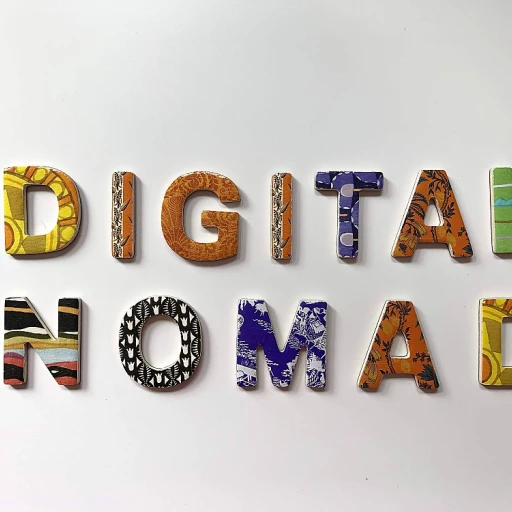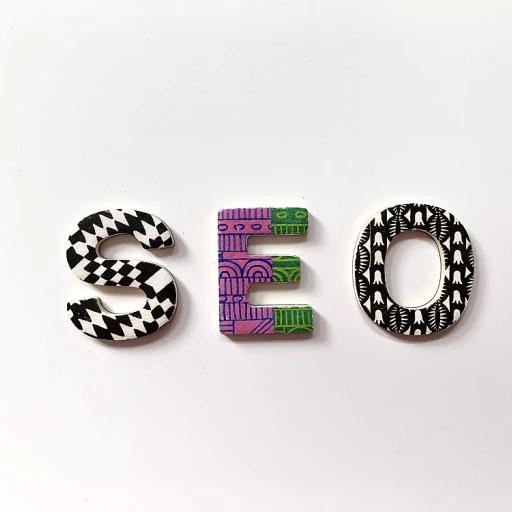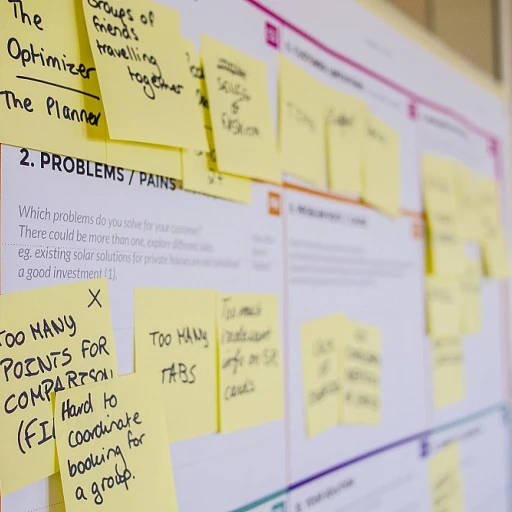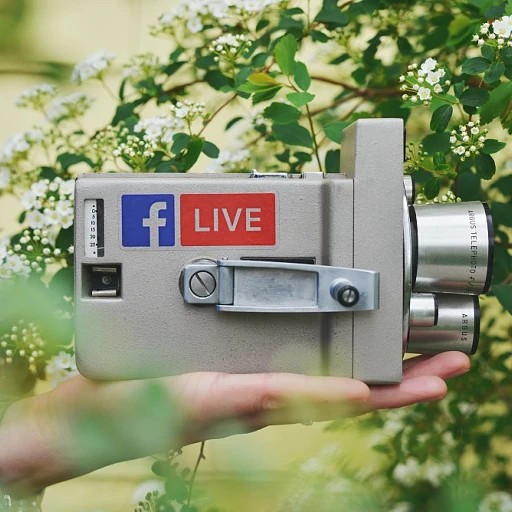
The Role of AI in Image SEO
The Emergence of AI in Image Optimization
The integration of artificial intelligence in various facets of SEO has opened new avenues for enhancing digital content, particularly in the area of image optimization. As images comprise a significant chunk of online content, search engines like Google continuously strive to deliver the most relevant and high-quality visuals in response to user queries. AI technologies are now spearheading these efforts, ushering in a new era of efficiency and accuracy.Transforming the Way We Approach Image SEO
Artificial intelligence is fundamentally transforming the way images are optimized for search engines. Traditional methods relied heavily on manual processes such as adding ALT text and closely monitoring image sizes; however, AI tools have revolutionized these tactics by automating and refining them. Machine learning algorithms can now analyze image content, context, and relevance more effectively than ever before, enabling a more seamless SEO process. Additionally, AI is proving to be indispensable in identifying key visual elements and generating appropriate metadata, including captions and tags. This level of precision allows for the creation of images that are not only visually appealing but also perfectly aligned with the requirements of search algorithms, thereby maximizing their visibility.The Benefits of AI in Image Optimization
Implementing AI in image SEO yields multiple benefits. For one, these technologies drastically reduce the time and effort required by SEO professionals to optimize images, as intelligent systems handle most of the legwork. More crucially, AI-driven optimization ensures consistency and precision, which are critical for maintaining competitiveness in SERPs (Search Engine Results Pages). Furthermore, by enhancing the speed and accuracy of image SEO, AI plays a pivotal role in improving mobile user experience and load times, as explored in this article. The meticulous optimization of images ensures that pages load quicker, providing users with a fluid and satisfying browsing experience. In essence, the application of AI in image optimization is a game-changer for SEO strategies. As we delve further into the intricacies of optimizing images for better search rankings and user experience, the subsequent sections will illustrate the tangible impact of these tools and techniques on modern SEO practices.Optimizing Images for Better Search Rankings
Enhancing Search Rankings Through Image Optimization
In the realm of search engine optimization (SEO), image optimization has become a vital piece of the puzzle. With the advent of artificial intelligence, optimizing images for search rankings is not only more efficient but also more impactful. AI technologies analyze diverse aspects of images, such as size, format, and context, to ensure they meet search engine criteria effectively. AI algorithms help by automatically compressing images without compromising quality, making them quicker to load and more accessible to search engines. This decrease in load time directly influences search rankings, as faster loading pages are favored by search engine algorithms. Additionally, AI can dynamically generate descriptive alt text, improving the image's visibility to search engines while enhancing accessibility for users with visual impairments. Moreover, the use of AI extends to understanding the content within images. AI tools can analyze visual content to suggest better keywords and tags, making images relevance-aligned with the topic at hand. As search engines evolve to prioritize semantic understanding, this feature of AI aligns perfectly with current SEO trends, therefore, plays a substantial role in enhancing search rankings. For more insights into how technology like AI chatbots can further boost your SEO strategy, consider exploring this guide on AI-enhanced SEO performance. By integrating such technologies into your digital strategies, you open doors to robust optimization potential.Tools and Techniques for AI-Based Image Optimization
AI Tools Powering Image SEO Innovation
Artificial intelligence has brought forth a wide range of tools and techniques for optimizing images, making it easier than ever to enhance your site's performance in search engine results. These AI-powered tools simplify and automate time-consuming tasks, providing actionable insights tailored to boosting image SEO. One prominent category of AI tools focuses on image analysis and tagging. These solutions employ machine learning algorithms to automatically generate accurate and relevant metadata for images, making them more comprehensible to search engines. As a result, these tools help webmasters overcome the challenge of keyword stuffing while ensuring image relevance. Furthermore, AI platforms dedicated to image compression and resizing enable content creators to maintain high-quality visuals without sacrificing page load speed, which is crucial for enhancing user experience and search rankings. By seamlessly adjusting image dimensions and optimizing formats, these tools contribute significantly to reducing bounce rates and increasing dwell time, ultimately leading to better SEO outcomes. For those looking to delve deeper into the arsenal of AI SEO tools available, exploring the best AI SEO tools for your website can provide valuable insights into the latest advancements in the field, equipping you with the tools to stay ahead of the competition. Overall, leveraging AI in image optimization offers numerous advantages, streamlining optimization efforts and enabling more efficient allocation of resources. These innovations don't just improve search rankings; they also play a crucial role in refining the user experience by ensuring rapid page load times and enhancing visual appeal across digital platforms.Improving User Experience with Faster Loading Times
Enhancing User Experience: The Role of Faster Loading Times
One of the key elements in improving user experience on a website is ensuring fast loading times. This is particularly critical when it comes to image-heavy pages. By leveraging artificial intelligence, webmasters can significantly reduce the loading times for images, which has a direct impact on overall page load speeds. AI-driven algorithms are adept at analyzing and compressing images without losing their visual quality. This means that images can be optimized to load quickly while maintaining high resolution, enhancing the user experience for visitors. Faster loading times not only keep users engaged but also play a crucial role in reducing bounce rates. Moreover, search engines like Google prioritize websites that offer swift user experiences, including fast loading times. This is why optimizing images with AI is integral to achieving better search engine rankings, as discussed in previous sections. By ensuring that images load rapidly, websites can improve their visibility in search results, leading to increased traffic and potential conversions. Ultimately, the seamless integration of AI in image optimization is a win-win for both the users and the website owners. Users enjoy a smooth browsing experience free from frustrating delays, while website owners benefit from improved performance metrics and search engine rankings.Visual Search and AI: A New Frontier
The Intersection of Visual Search and AI
As the digital landscape continues to evolve, visual search powered by artificial intelligence is emerging as a new frontier, reshaping the way users interact with online content. This technological advancement is not just an incremental improvement; it's a transformational shift in how search engines process and deliver information. When we talk about visual search, we're discussing a capability that allows users to search using images instead of text. For instance, imagine seeing a pair of shoes you'd love to own, snapping a photo, and then finding out exactly where you can purchase them online. This scenario is increasingly becoming a reality, thanks to AI's ability to analyze and understand image content at a granular level. AI plays a pivotal role in this by using machine learning models and computer vision algorithms to interpret the nuances of images. This goes beyond merely recognizing objects; AI can identify intricate details like textures, colors, and patterns, making visual searches more precise and responsive to user intent. The implications for SEO are significant, as optimizing images for visual search means enhancing visibility and engagement. Businesses that harness AI-driven techniques for visual search optimization stand to gain not only in terms of organic traffic but also by offering a more seamless and engaging user experience. It's clear that visual search, complemented by AI's advancements, is setting the stage for a new era in how users discover and interact with information online.Case Studies: Success Stories in AI Image Optimization
Real-World Examples of AI-Driven Image SEO Success
To truly understand the transformative power of AI in image optimization for SEO, it's essential to look at real-world applications and success stories. Companies across various industries have leveraged AI technologies to enhance their image SEO strategies, leading to improved search rankings and user engagement.
Retail Giant Boosts Visibility
A leading online retail company implemented AI-based image optimization tools to enhance their product images. By using AI algorithms, they were able to automatically adjust image sizes, formats, and alt texts, ensuring that their product visuals were not only high-quality but also SEO-friendly. This resulted in a significant increase in organic traffic and higher visibility on search engine results pages (SERPs).
Travel Agency Enhances User Experience
In the travel industry, a renowned agency adopted AI-driven techniques to optimize their destination images. By improving image loading times and quality, the agency not only enhanced the user experience but also witnessed a noticeable improvement in their website's search rankings. This aligns with the broader trend of improving user experience with faster loading times, as discussed earlier.
Visual Search Innovation in E-commerce
An e-commerce platform specializing in fashion utilized AI to enhance their visual search capabilities. By optimizing images for search engines and incorporating AI-driven visual search technology, they provided users with an intuitive way to find products. This innovation led to increased user engagement and conversion rates, showcasing the potential of visual search as a new frontier in SEO.
These case studies highlight the diverse applications and significant benefits of AI in image optimization for SEO. As AI technologies continue to evolve, businesses can expect even more opportunities to enhance their digital presence and achieve better search rankings.













